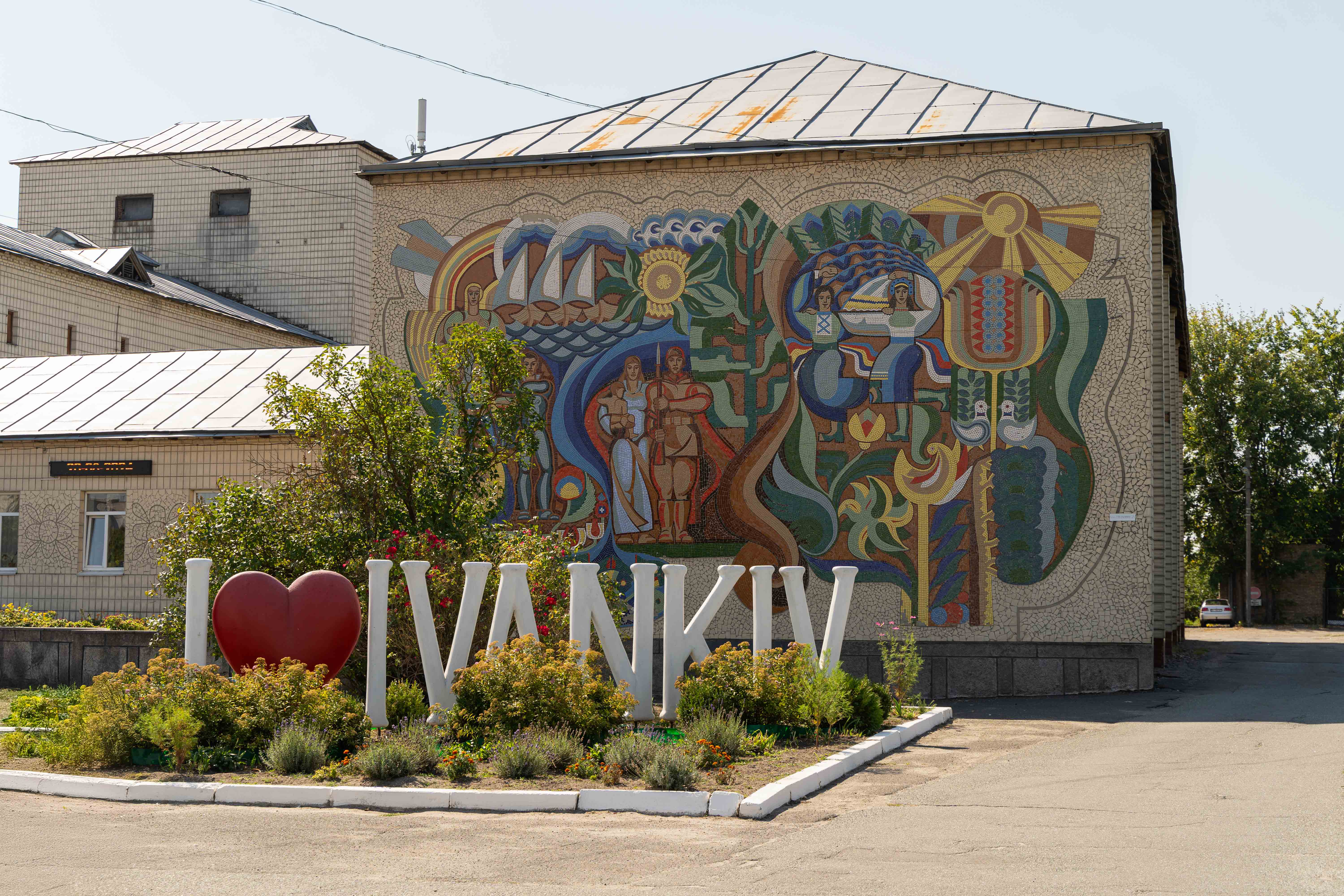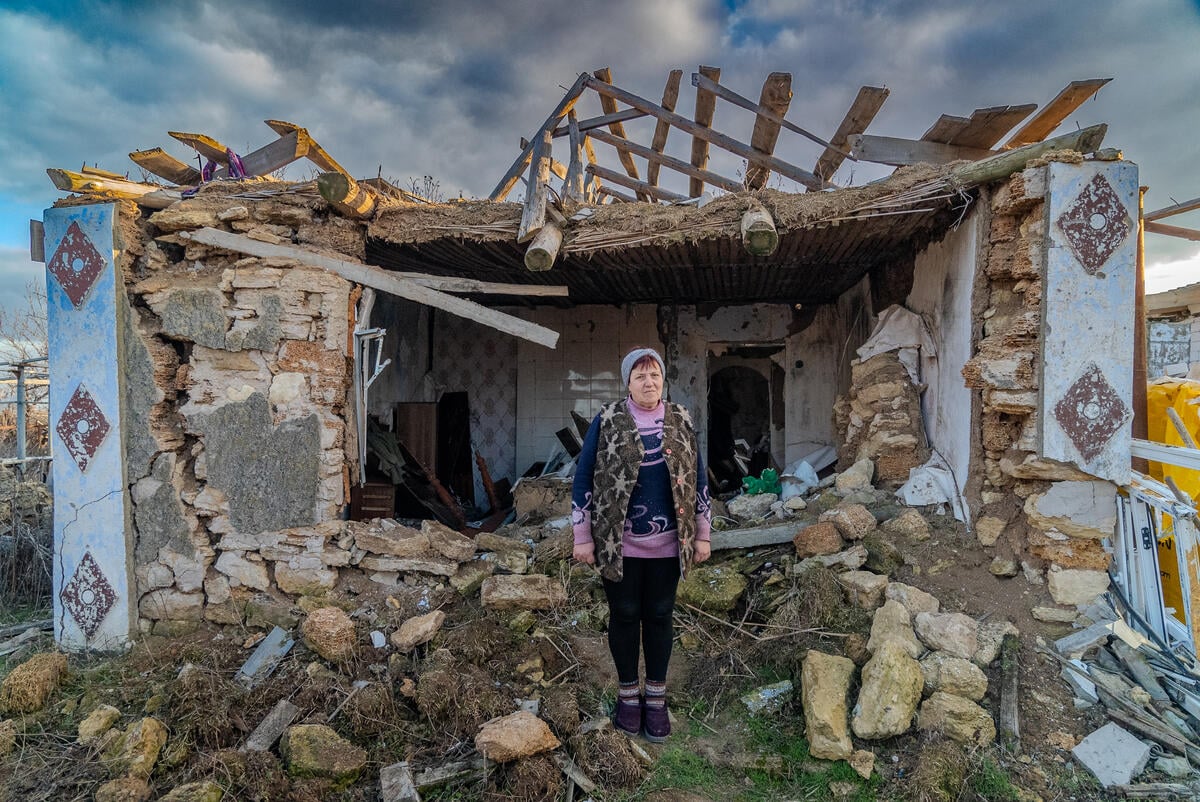Portraits of refugees in Ukraine: Story of Noda
Portraits of refugees in Ukraine: Story of Noda

Noda, a refugee from the Democratic Republic of the Congo, lives with his wife and young daughter in a small rented apartment in Kyiv. Nine years ago, he had to flee his country and to seek asylum because of the continuous fear and persecution his family and himself suffered in his home country.
“In fact, I have never been active in politics, says Noda. – Arts was all I was thinking and dreaming about. After graduating from Kinshasa University and receiving a Master of Arts degree, I was making various designs for posters, brochures, and more. Apart from that, I have been playing guitar in a small band”.
Back in 2009, when Noda was first suspected of anti-government actions, it was time of political instability and economic crisis in the Congo. Even those far from politics were affected, just because of being in a wrong place at a wrong time. Noda was walking a central street of his city, when one of the strangers nearby threw a stone at the president’s cortege passing by. Police arrested everybody who were at the scene.
“They took away my phone, my watch, my documents. Many times, I was interrogated. They asked me whether I knew the person who threw the stone at the car. I later learned that they found this man, and he was killed in prison”
Since the 1990s, a severe and complex socio-economic and political crisis has been raging in the Congo, earning the country a top-ten place on the Failed States Index list. Two wars and several regional armed conflicts devastated the Congo in recent decades. Many children have been orphaned, and some - recruited as child soldiers. The education system has also suffered. Many schools are in bad condition with their property destroyed or looted, and lands belonging to educational institutions have been sold by the state for private purposes.
Noda was released from jail after two weeks and was prohibited from leaving the city and talking to media. Later, the police broke into his parents’ house at night to interrogate him again. This time it was about his uncle: did Noda work for him and did he engage in political agitation?
“I was 30 years old. That was my first time on a ship, and for such a long journey, too. I spent almost a month in a small compartment near the engines"
“My uncle leds a non-governmental organization called ‘Ne touche pas mon école’ (French for ‘Do not touch my school’),” Noda explains. “Its objective was to safeguard the rights of schools and kindergartens, and to fight for equal education for all and against the illegal sale of land they owned.”
Noda was sent to prison a second time. After his release, he felt constant pressure from the police, who followed and recorded his every move. Noda’s parents realized that Noda needs to flee the country. They made the arrangements and managed to put Noda illegally on a ship.
“I was 30 years old. That was my first time on a ship, and for such a long journey, too. I spent almost a month in a small compartment near the engines. I was a ghost, an invisible person. When all the passengers were entertaining, eating and resting on the deck, my only meal was bread and sometimes chocolates. To make matters worse, I had no idea what my destination was.”
"When you work, there is nothing left to do other than to learn quickly. Language takes practice"
The ship arrived in the port of Odesa in 2011 and a few days later Noda came to Kyiv, where he could get support from African community members, many of whom had fled their homes for similar reasons. They advised him to reach out to the Right to Protection and Rokada, two non-governmental organizations partnered with the United Nations High Commissioner for Refugees (UNHCR) helping refugees in Ukraine.
Without official documents, it was difficult for Noda to find work. He once slept at the train station after being evicted because he did not have any money for rent. Noda has worked many different jobs since arriving in Ukraine, but eventually established himself in a carpenter profession, and now is able to support himself and his new family.
“Everything became easier when I learned the language. Where did I study? On the street and at work. When you work, there is nothing left to do other than to learn quickly. Language takes practice. Now I am making furniture, it is also a kind of art.”

As we talk, Noda’s wife Debora starts playing the piano. The music is calm and enchanting, setting the scene for their story. Debora was forced to leave the Congo due to ethnic persecutions. Soon after they first met, they realized how much they had in common: music, art and religion, which formed the foundation of the relationship.
“Debora is very talented; she is working as a clothes designer. She also completed courses in manicure and baking. God, what delicious bread she cooks,” Noda says smiling.
Noda and Debora are Christians. They met at the church where they serve. Noda read sermons and plays guitar in a worship band, while Debora sings. After attending the compulsory courses for future families provided by the church, they felt they had a better understanding of their relationship and the goals of family building. Three years ago they decided to marry.
“The main question we had to answer was: ‘Why this person? Why do you love her/him?’ Not everyone will be able to answer this question, but this is the most important thing,” Noda laughs.
Today Noda is not only a happy family man, but also a happy musician. In Ukraine, his dream of leading a music band became reality. Together with musicians from his African folk band, they often perform in Kyiv. The artists believe that music is the best language for understanding. Noda still paints, inspired by nature: the fruits and leaves of palm trees from his native city of Kinshasa.
Noda recently received a UNHCR self-reliance grant to support his own music studio. He plans to hold master classes with aspiring musicians to develop new talent. Through their artistic activities and work as artisans, Noda and Deborah are able to give back to the community that has given them so much.
His journey has been one of uncertainty, but through his talent, creativity and determination, he has come to know a life of fulfilment and stability with friends and family.
“I am very grateful for all the support I received from Ukraine and its people. This country, its nature, hospitality, delicious food keeps inspiring me for the creation of the new pieces of art. I was looking for refuge and safety, but found even more - family and confidence in my future”.
The UNHCR has established the series “Portraits of a Refugees in Ukraine” in order to convey stories of people who have received protection in Ukraine. According to the recent data, there are more than 70 million asylum seekers, refugees, internally displaced and stateless people globally. During 25 years of its work in Ukraine, the UNHCR invests in developing durable solutions for displaced people, ensuring that they have a safe place to call home where they can build a better future.


























